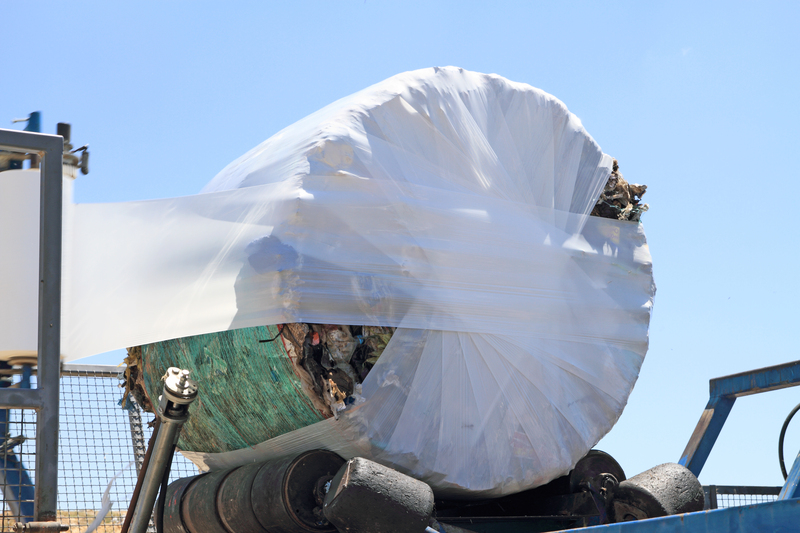Sustainable Future with Metal Recycling in Focus
In recent years, environmental sustainability has become a central theme in global discussions. A pivotal aspect of achieving sustainability is focusing on metal recycling. By emphasizing metal recycling, we not only conserve resources but also minimize environmental impacts, contributing to a more sustainable future. This article delves into how metal recycling can drive us towards an environmentally-friendly future while exploring the mechanisms and benefits of this crucial process.
The Importance of Metal Recycling
Metal recycling plays an essential role in our global economy and environment. Primarily, it aids in the conservation of natural resources. Metals like aluminum, steel, and copper are integral to countless industries, yet extracting these materials from the earth is both energy-intensive and depletes finite natural reserves.
- Energy Conservation: Recycling metals consumes significantly less energy compared to producing new metals from ore. For instance, recycling aluminum saves up to 95% of the energy required for its production from raw materials.
- Reduction in Carbon Emissions: The energy saved from recycling also translates to decreased emissions of greenhouse gases. Reduced energy usage directly lessens the carbon footprint associated with metal production.
- Preservation of Natural Habitats: Mining activities for virgin metals often lead to deforestation and the destruction of natural habitats. By recycling metals, the demand for new mining reduces, hence safeguarding the environment.
How the Metal Recycling Process Works
The metal recycling process involves several stages, each crucial in ensuring the transformation of used metal into a reusable resource. Here, we outline the key steps involved:
- Collection: The first step involves gathering metal waste from various sources such as households, commercial entities, and industrial sites.
- Sorting: After collection, metals are sorted based on type. Advanced technologies, including magnets and sensors, are employed to categorize metals into ferrous and non-ferrous varieties.
- Processing: Once sorted, metals undergo processing, which typically includes shredding or compacting to make them more manageable and easier to melt.
- Melting: The processed metals are melted in a furnace. This stage is energy-efficient compared to the initial smelting process of raw metal ore.
- Purification: To ensure the end product's quality, metals are purified using various methods, such as electrolysis or distillation.
- Solidification: The purified metal is then solidified into specific forms, depending on its future use, such as sheets, bars, or blocks.
Environmental and Economic Benefits of Metal Recycling
Metal recycling not only aligns with environmental goals but also presents significant economic advantages. Below are the most notable benefits:
- Resource Efficiency: Recycling processes use fewer natural resources compared to the extraction and refinement of virgin materials.
- Economic Growth: The recycling industry creates jobs across various stages, from collection to processing and manufacturing of new products.
- Market Expansion: As global awareness on sustainability increases, investing in metal recycling can open new markets and business opportunities.
- Reduction in Production Costs: Recycling operations can lead to lower costs for raw materials as recycled metals typically incur fewer expenses than their virgin counterparts.
Challenges and Innovations in Metal Recycling
Despite its myriad benefits, the metal recycling industry faces several challenges. Contamination, technological limitations, and economic barriers often hinder efficient recycling processes. However, innovations in recycling technologies are paving the way for overcoming these challenges:
- Advanced Sorting Systems: Modern advancements like machine learning algorithms are improving the efficiency and accuracy in metal sorting, thus minimizing contamination risks.
- Improved Purification Techniques: Innovations such as ionic purification processes are enabling industries to extract high-purity metals from recycled materials.
- Development of Recycling Infrastructure: Expanding infrastructure investment is critical for improving collection and processing efficiency, especially in developing regions.
The Future of Sustainable Metal Recycling
Looking ahead, the integration of smart technologies and data analytics holds the promise of making metal recycling more efficient and sustainable. Incorporating Artificial Intelligence (AI) and the Internet of Things (IoT) in the metal recycling sector could streamline operations and enhance decision-making processes. Additionally, collaboration among governments, industries, and consumers is indispensable for fostering responsible recycling habits and maximizing the sector's potential.
As awareness grows about the importance of recycling,'sustainable metal recycling' is becoming a focal point in efforts to combat climate change and establish a circular economy. By investing in recycling infrastructure and green technologies, we move towards a promising future where environmental conservation and economic prosperity coexist harmoniously.
Conclusion: A Call to Action
The path to a sustainable future is undeniably intertwined with effective metal recycling. Individual efforts, combined with policy supports and industrial shifts towards recycling, can significantly mitigate environmental damage and promote sustainable development. It is not only a viable alternative but a necessity. As stakeholders at all levels--from consumers to policymakers--come together to champion recycling initiatives, we can indeed look forward to a greener, more sustainable future centered around the efficient use of metals.
In light of these insights, let us embrace metal recycling as a powerful tool for creating an eco-friendly world and secure a sustainable future for generations to come.

